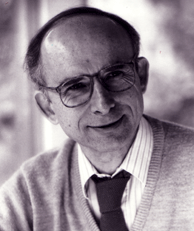Time plays a dual role in physics. On the one hand, it serves as organizing principle in the description of the ceaseless transformations of the world around us. On the other hand, it is itself the object of study by both theoretical and experimental physicists. They tell us that it is not the smoothly flowing river Isaac Newton assumed it to be, a notion that still informs most people's world picture. In fact, modern physics demonstrates that it is an elastic, turbulent, and possibly even grainy sort of stuff -- though ultimately its true nature remains as enigmatic as ever.
Prof. von Baeyer will review the contributions of five branches of physics to our understanding of the meaning of time: the science of heat, the special and general theories of relativity, quantum theory, and the latest synthesis called quantum gravity. Using colloquial language and accessible analogies, he seeks answers to the questions: How has scientific thinking about time influenced the common perception of time? What insights of modern physics regarding time touch the popular imagination? And, what discoveries have yet to make their marks on public understanding of time?
The story roams from billiard balls to the big bang, from his first youthful intimations of the mystery of time to the possibility of time travel, from a dialogue between Socrates and Timaeus to a debate between Albert Einstein and Niels Bohr. In the end the perplexities of time appear to be much closer to the realities of our daily lives than is commonly appreciated.
Author of over 100 technical and popular articles and books, Dr. von Baeyer's popular writing includes essays in Discover, New Scientist, Reader's Digest, and The Gettysburg Review, among others. He won the 1991 National Magazine Award in the category "Essays and Criticism," as well as the AAAS Science Journalism Award and the Library Journal's Best Science-Technical Book Award for his book, Maxwell's Demon. His books have been translated into six languages. His great-great grandfather, Johann Jacob Baeyer (1794-1885), was a famous German geodisist whose son, Adolf von Baeyer, won the Nobel Prize for chemistry in 1905.



